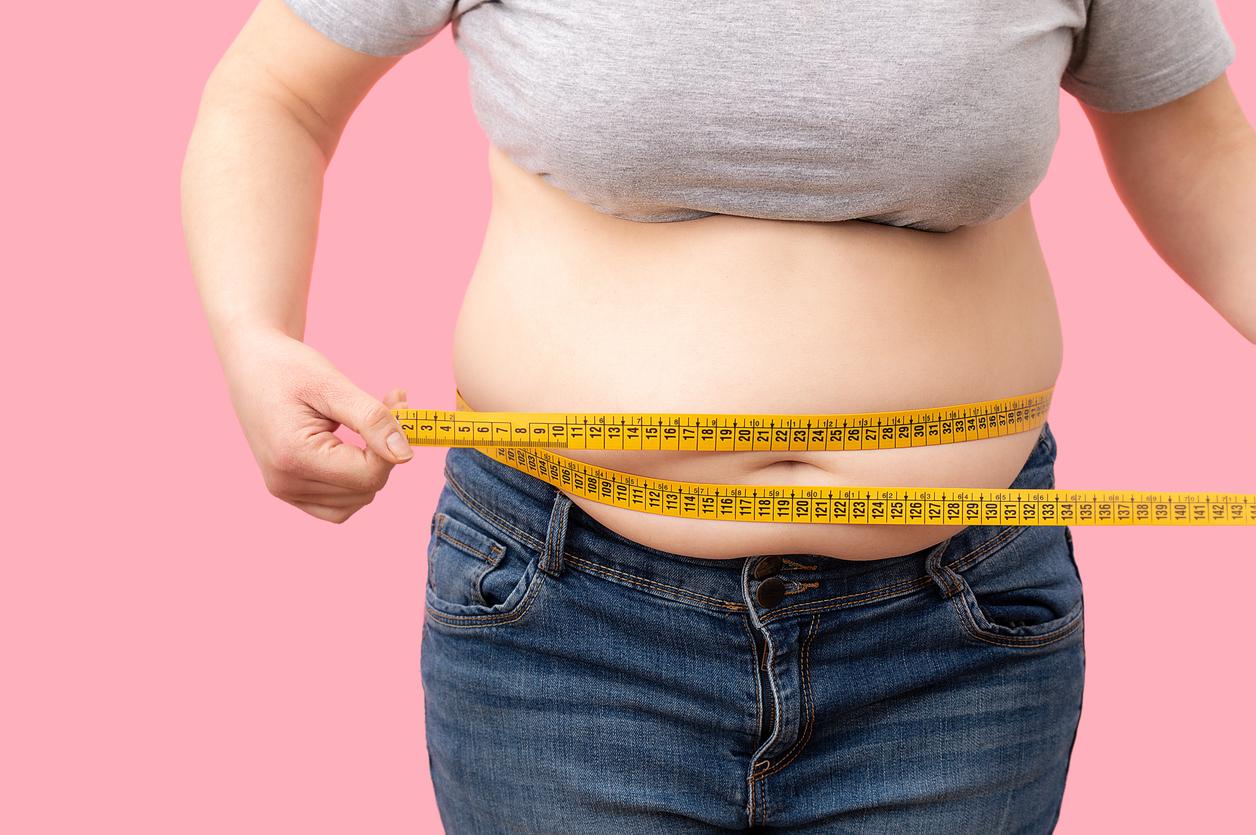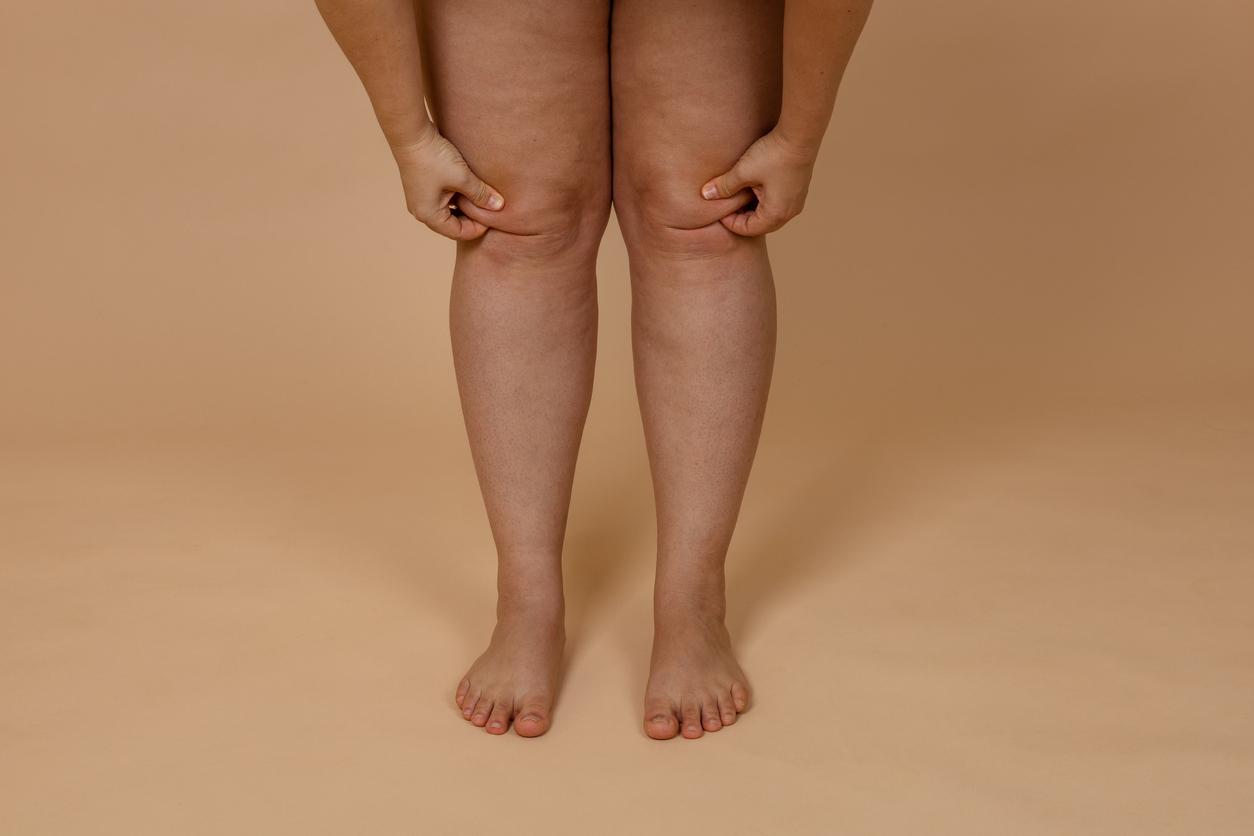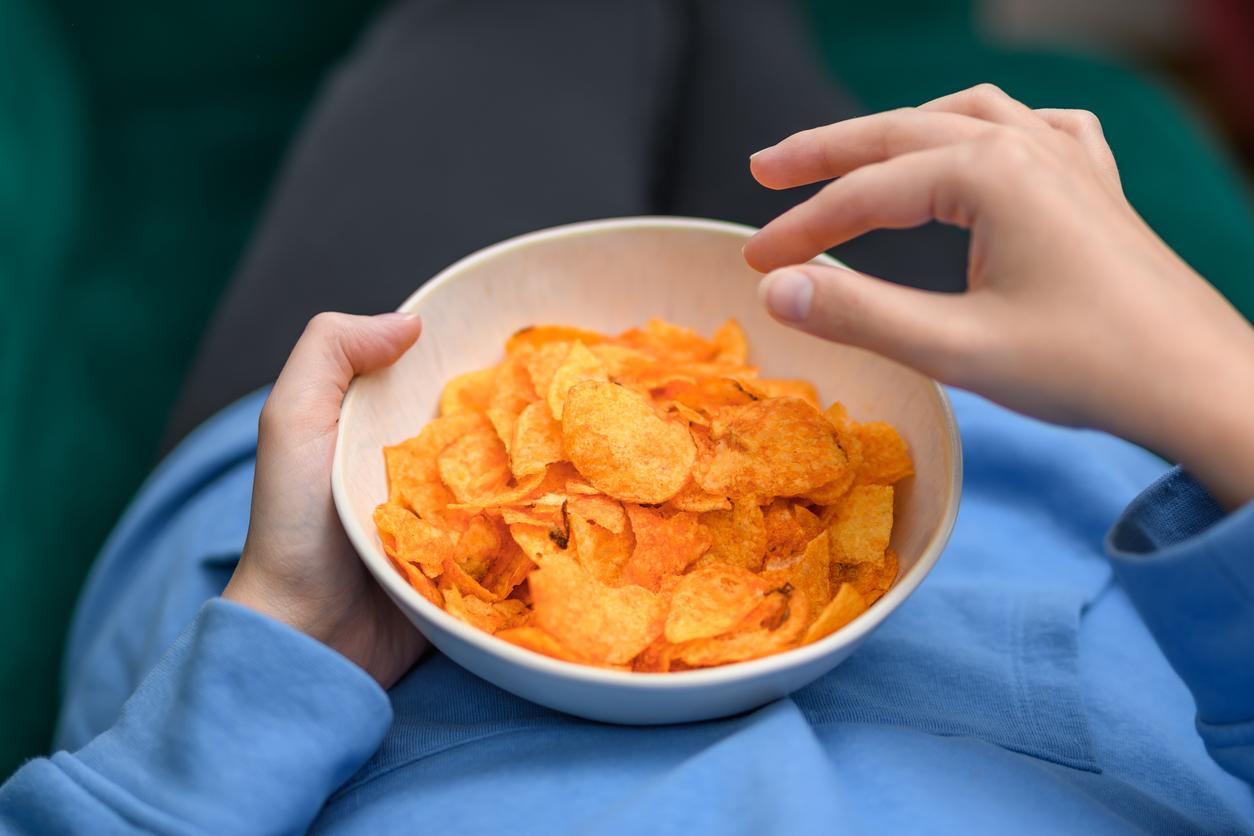Neuroleptics
These drugs given in the context of major psychiatric disorders (schizophrenia, bipolar disorders, hallucinations, etc.) may be responsible for significant weight gain (over 7% of weight on average). “They act on the receptors of certain neurotransmitters (serotonin, dopamine, histamine, etc.), stimulate ordemanding peptides (which increase appetite) and inhibit anorectic peptides (which decrease appetite)”,explains Dr. Jean-Michel Lecerf, nutritionist.
Result: an increase in hunger which is sometimes associated in these diseases with a decrease in activity (loss of motivation, withdrawal, etc.) and therefore a reduction in energy expenditure. “Second-generation neuroleptics have fewer side effects (like tremors) than first-generation ones, but they can cause more weight gain,” emphasizes the doctor.
The board : The ideal is to inform the patient beforehand, so that he can put in place lifestyle and dietary measures that limit weight gain. Unfortunately, psychiatrists are often overwhelmed and focus on treating the disease first. The parallel consultation of a dietitian or nutritionist can help.
Antidepressants
It is especially tricyclic antidepressants that can cause weight gain (more than 5% of weight on average) in the event of long treatment. Like neuroleptics, they increase the feeling of hunger.
But today, we mainly prescribe serotonin reuptake inhibitors, antidepressants that have fewer side effects and have less impact on the line. “The effects of antidepressants vary greatly from person to person. You have to try for a month and then change if it doesn’t suit,”says Dr. Lecerf. Sometimes it is not the antidepressants that are to blame, but the depression itself: we tend to snack on sweets to calm down and we are not motivated to move, hence a risk of weight gain. .
Anxiolytics also, by their sedative effect, lead to less movement and less spending. However, these should be taken for a short duration.
The board : Make complete meals rich in fibers and proteins which promote satiety, provide yourself with a snack (almonds + apple, fromage blanc + orange, hazelnuts + square of dark chocolate, etc.) to avoid nibbling.
Corticosteroids
Corticosteroids are powerful anti-inflammatories that are prescribed in many diseases: rheumatic diseases (rheumatoid arthritis, ankylosing spondylitis), respiratory (asthma, COPD), intestinal (Crohn’s disease, ulcerative colitis)…
“Their effects depend on the duration of treatment and the prescribed dose. Taken in high doses and for a long time, they increase appetite, promote fat storage and water retention,” says Dr. Jean-Michel Lecerf. They cause a redistribution of fat in the body, especially in the face and stomach.
If there are no other possible treatments, the lowest effective dose should be sought. “Biotherapies are revolutionizing the management of chronic inflammatory diseases, they can already replace corticosteroid therapy in some cases”,explains the doctor.
The board : Make complete meals rich in satiating foods to avoid cravings, limit salt at the table and salty products (bread, cheese, cold cuts, smoked fish, ultra-processed products, etc.), eat a lot of vegetables which are satiating and provide potassium which helps to fight against water retention.
Hormone treatments
At the start of menopause, in the event of gynecological diseases such as endometriosis or for contraception, hormonal treatments may be prescribed. “Progesterone has androgenic activity and can promote fat storage, estrogen promotes water retention”, says Dr. Lecerf.
However, weight gain is often low. Especially with birth control pills which are much less heavily dosed than before. If you have gained 3 kg, it is not the treatment that should be incriminated, but rather your way of life. At menopause, mood swings that lead to snacking and the loss of normal muscle mass at this age are also implicated in weight gain.
The board : Take care to make balanced meals by giving pride of place to vegetables which are both light and satiating, do not proscribe starchy foods, but favor those which are complete, limit salt at the table and salty products (bread, cheese, charcuterie , smoked fish, ultra-processed products, etc.).
Antidiabetics
Insulin is a hormone that allows sugar to enter cells to provide energy or, if it is in excess, to be stored as fat. Taking insulin, but also sulfonamides (drugs that stimulate insulin secretion) can therefore promote weight gain. A vicious circle can then engage: overweight favoring insulin resistance, it may be necessary to increase the doses to balance glycemia (blood sugar level). Be aware, however, that for type 2 diabetics, there are antidiabetics that do not cause weight gain. You should talk to your doctor to find the most suitable treatment.
The board : Learning to eat a balanced diet and favoring foods with a low glycemic index (which have little or no impact on blood sugar) is essential. Meals should vary, with a good portion of vegetables, whole starches, a little protein and good fats. Small sweet pleasures should remain occasional and always taken at the end of a meal.
Antihistamines
Sold for some without a prescription, allergy medications (which block histamine) can promote weight gain. At the level of the hypothalamus, they would promote hunger signals and lower those of satiety with, as a result, an increased appetite. Some, by inducing drowsiness, would reduce activity and therefore energy expenditure. “The latest generation antihistamines have less effect on weight”,reassure the doctor. Moreover, it is a chronic intake that can be problematic, a one-off or short-term intake does not present any risk for the line.
The board : Preferably take antihistamines in the evening to avoid the effects of drowsiness, ensure that you have a balanced diet and regular physical activity (at least 30 minutes of brisk walking per day).
Antiepileptics
Some epilepsy medications can cause weight gain. As with neuroleptics, this happens in the brain, with effects on certain neurotransmitters that lead to an increase in appetite.
There are antiepileptics which do not cause weight gain, but which can have other side effects (fatigue, dizziness, digestive disorders, etc.). It is important to discuss with your doctor to find the most suitable treatment. Note that some antiepileptics on the contrary make you lose weight and are diverted by some of their primary indications, which is not without danger.
The board : It is best to inform the patient beforehand so that he can monitor his weight, with a balanced diet and regular physical activity. Consulting a nutritionist or dietitian can help.
What to do in case of weight gain?
1. Do not stop treatment without medical advice.2. Discuss with your doctor to see if there are alternative treatments.3. Try other treatments if available, or find the lowest effective dose.4. Make 3 balanced meals a day, possibly with a snack, favoring satiating foods, that is to say rich in fiber and protein.5. Avoid any restrictive diet that creates frustrations and leads to food compulsions.6. Remember to move regularly every day: cycle to work, walk during lunch break, take the stairs, garden, walk to the bakery…7. Practice regular physical activity, choosing an activity that you love so as not to give up: cycling, swimming, jogging, dancing, yoga…


















